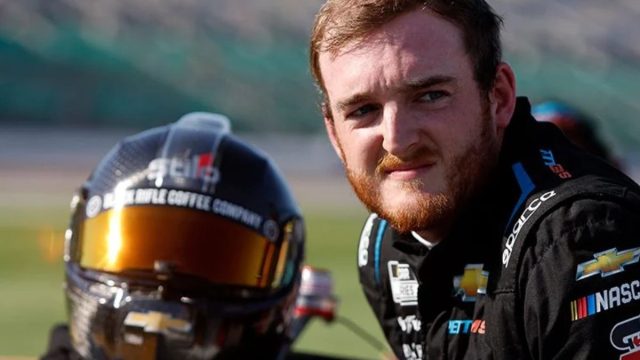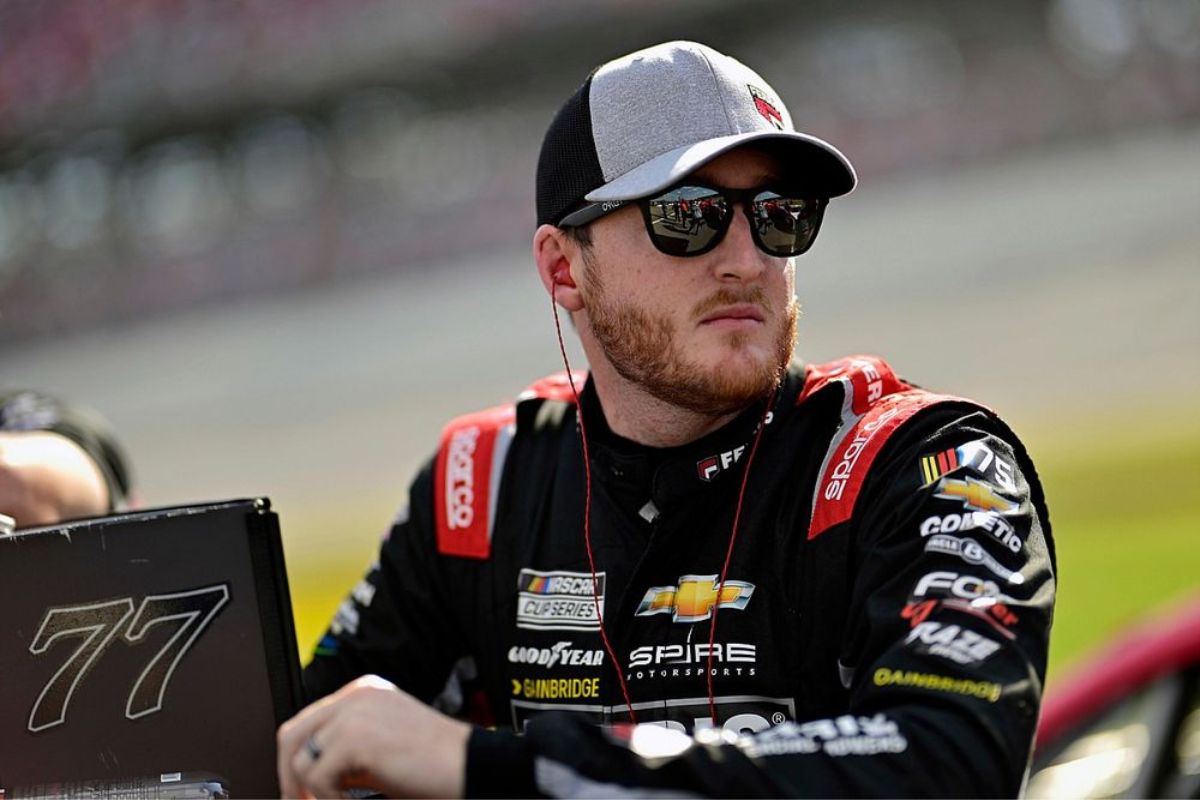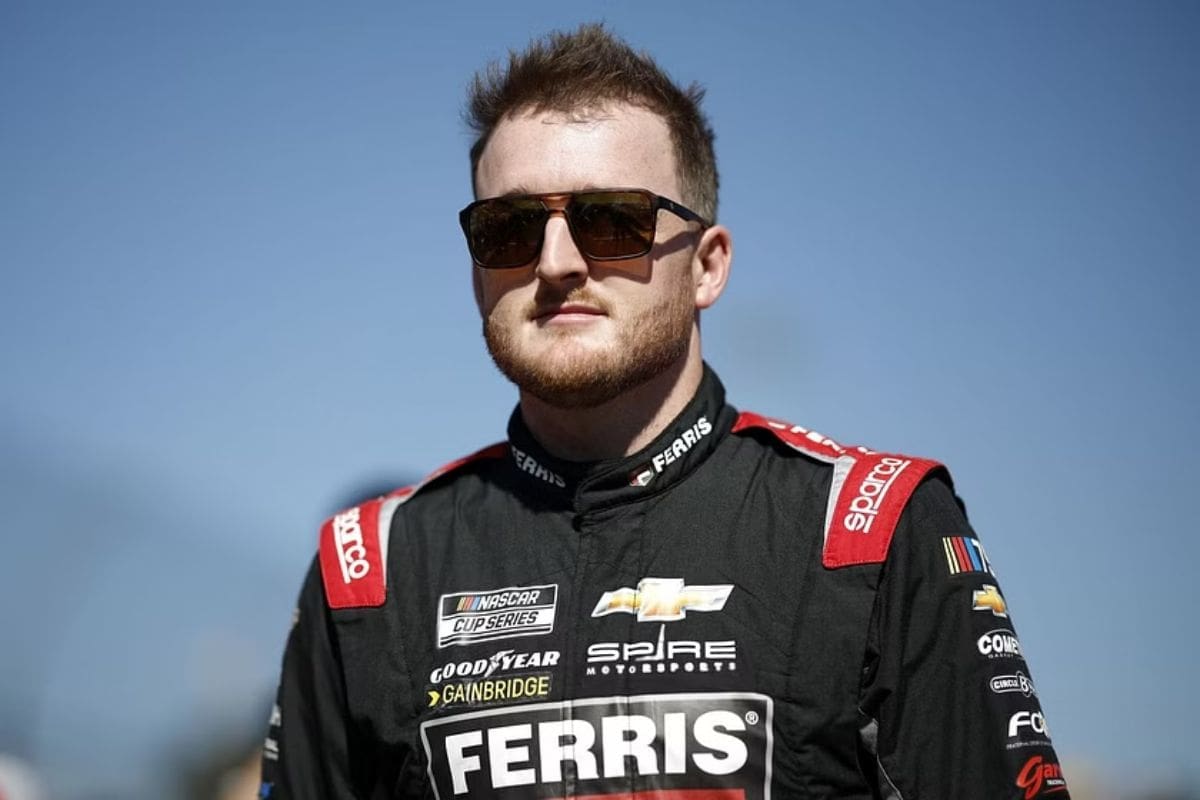Ty Dillon’s Bold Claim: Ty Dillon‘s bold assertion questioning NASCAR’s success has undeniably stirred the pot within the motorsport community, casting a spotlight on the intricate dynamics of the sport. Dillon’s critique has divided fans and analysts, with some praising his forthrightness while others argue he oversimplifies NASCAR’s multifaceted nature. This controversy has set social media ablaze, sparking fervent debates over the validity of Dillon’s views. As the racing world grapples with these controversial opinions, the underlying issues raised by Dillon’s remarks demand a closer inspection of NASCAR’s competitive landscape and its future trajectory.
Key Highlights
- Ty Dillon emphasizes the importance of entertaining fans alongside racing competition.
- Dillon’s statements have polarized the NASCAR community, sparking support and criticism.
- Supporters appreciate Ty Dillon’s candid approach and compare him favorably to his brother Austin.
- Critics argue Dillon’s views oversimplify NASCAR and label his opinions as a ‘bad take’ on the sport.
- Dillon’s perspective has shifted fan perception and increased engagement with his role at Kaulig Racing.
NASCAR’s Winning Culture
NASCAR’s winning culture is deeply rooted in a legacy of excellence, represented by iconic drivers like Jimmie Johnson, Dale Earnhardt, Jeff Gordon, and Richard Petty, who have set unmatched benchmarks in the sport’s history. These drivers not only amassed an impressive number of victories but also redefined the essence of competitive racing through their skill, resolve, and strategic skills. Their achievements have anchored NASCAR in motorsports history, setting standards that inspire current and future generations of drivers.
Jimmie Johnson’s seven championships, for instance, highlight a remarkable era of dominance facilitated by his exceptional ability to adapt to varying conditions and regulations. Similarly, Dale Earnhardt’s aggressive driving style and seven championships earned him the moniker ‘The Intimidator,’ symbolizing his unmatched competitive edge.
Jeff Gordon’s precision and consistency brought innovation to the sport, while his four championships highlight his superior racecraft. Richard Petty, often referred to as ‘The King,’ remains a towering figure with 200 career wins and seven championships, reflecting a blend of endurance and expertise that few have matched.
The culture of winning extends beyond individual accolades; it is embedded in the ethos of NASCAR teams and organizations. Crew chiefs, engineers, and pit crews operate with a shared mission of excellence, fine-tuning every aspect of performance to glean competitive advantages.
This collaborative effort fosters an environment where continuous improvement is not just encouraged but necessary. Consequently, NASCAR’s winning culture is a tribute to the relentless pursuit of perfection, where the victors not only secure their legacy but also push the boundaries of what is possible in motorsports.
NASCAR’s Competitive Nature and Objectives
Motivated by a steadfast commitment to winning, the competitive nature of NASCAR is exemplified through its diverse range of racing formats, including ovals, superspeedways, and road courses. This variety in track design demands a multifaceted skill set from drivers, who must adeptly navigate not only the high-speed, high-banked curves of superspeedways but also the intricate turns and elevation changes of road courses. Such diversity guarantees that the competition remains intense and unpredictable, challenging teams and drivers to constantly adapt and innovate.
The singular objective in NASCAR is indisputable: victory. This relentless pursuit of success drives strategic and tactical decisions, from car setup and pit strategies to driver training and team dynamics. The competitive ethos is further heightened by the stringent regulations governing car specifications, which aim to create a level playing field. This regulatory framework ensures that success is a result of skill, precision, and strategic insight rather than mere technological superiority.
Ty Dillon, a part-time driver for Kaulig Racing, highlighted this point on social media, emphasizing the cutthroat nature of the sport. His insights echo with the broader narrative that NASCAR’s structure is designed to foster competition and excellence. The championship format, with its playoff system and points accumulation, further intensifies this competitive spirit, rewarding consistency and peak performance.
Description of NASCAR Racing
The essence of NASCAR racing lies in its unique blend of high-speed precision, strategic depth, and the sheer physicality required to navigate a stock car amidst a tightly packed field of competitors. This sport is often misunderstood by those who reduce it to mere left turns and repetitive laps. However, the reality is far more complex and demanding.
Driving at speeds that often exceed 185 mph, NASCAR drivers must maintain razor-sharp focus and impeccable control. The G-forces experienced during these high-speed actions can be punishing, pushing drivers back into their seats with immense force. The physical stamina required is comparable to that of elite athletes in other sports. Each race, similar to a marathon, demands endurance and mental fortitude, as drivers must remain vigilant over prolonged periods.
Strategic planning plays an essential role in NASCAR racing. Teams carefully analyze data to devise race strategies, considering factors such as fuel management, tire wear, and pit stop timing. Misjudgments in any of these areas can prove costly, making the difference between victory and defeat. The importance of teamwork cannot be overstated; seamless communication between drivers and their pit crews is critical for adapting strategies on the fly.
Moreover, the close proximity of the cars adds complexity. With vehicles often separated by mere inches, the potential for collisions is high, requiring drivers to possess exceptional spatial awareness and reflexes. Each lap presents opportunities and threats, making the race dynamic and unpredictable.
Ty Dillon’s Perspective on NASCAR Racing
Ty Dillon, reflecting on the role of drivers within the sport, emphasizes that their primary function extends beyond mere competition to include entertaining the fans, thereby highlighting the symbiotic relationship between performance and spectacle in NASCAR racing. In a recent Instagram video, Dillon articulated his perspective, emphasizing that drivers must see themselves as entertainers. This viewpoint suggests that the essence of NASCAR is not solely about who crosses the finish line initially but about the complete experience that captivates and engages the audience.
“As drivers, we should see ourselves as entertainers. That’s what we are here to do. We’re here to put on a show. We’re here to excite the fans and that’s what makes this whole sport go round and what makes it awesome. We’re such a great fan-driven sport. It kind of goes back to the saying ‘Nobody really remembers who finished second’, right? Yes, we can have a great race but if the finish isn’t there, it’s not the same.” – (ty dillon)
Dillon’s assertion aligns with the broader understanding that NASCAR’s viability depends on its fan base. By describing the sport as ‘fan-driven,’ he acknowledges that the excitement generated by the races is crucial to NASCAR’s ongoing success. Dillon’s statement, ‘Nobody really remembers who finished as runner-up,’ represents the notion that memorable finishes and dramatic moments are what truly resonate with fans, thereby fostering loyalty and sustained interest in the sport.
This perspective invites a deeper analysis of the role of showmanship in NASCAR. It posits that the drivers’ abilities to create compelling narratives on the track are just as vital as their technical skills. The thrill of high-speed chases, strategic methods, and the uncertainty of outcomes are elements that transform a race into an enthralling spectacle. Dillon’s view suggests that the drivers’ engagement with the audience, through their on-track performance and off-track interactions, is integral to enhancing the sport’s appeal.
View this post on Instagram
Reactions to Ty Dillon’s Statements
Reactions to Ty Dillon’s statements have been remarkably polarized, reflecting a wide spectrum of opinions within the NASCAR community. Historically, Dillon has been a polarizing figure himself, often criticized as a beneficiary of nepotism due to his lineage as Richard Childress’ grandson. This background has sometimes overshadowed his achievements and contributions to NASCAR. However, his recent bold claims have sparked a notable shift in fan engagement.
Many fans have surprisingly rallied behind Dillon, with social media abuzz with supportive comments. Phrases like “Ty “The Legend” Dillon” and “Wooooooo TY DILLON” highlight a newfound appreciation for his candor. Some even favorably compared him to his brother, Austin Dillon, suggesting that Ty may be the superior driver among the two. This wave of support is particularly striking given the previous criticisms that have dogged his career, including doubts about his merit in securing a part-time role with Kaulig Racing.
“Ty the better of the 2 Dillons.” – (fan reaction)
Conversely, not all reactions have been positive. A subset of fans has expressed discontent with Dillon’s perspective on NASCAR, arguing that his views oversimplify the complexities of the sport. One critic labeled his opinions as a “Damn what a bad take on what racing is supposed to be” suggesting a fundamental disagreement with Dillon’s vision. Another fan lamented the perceived predictability of races, attributing it to the extensive rulebook that governs NASCAR, thereby insinuating that Dillon’s statements did not address these deeper issues.
“Yeah we do know what we’re going to get because every race is the same because there is a rule for every part of nascar!!!” – (fan reaction)
News in Brief: Ty Dillon’s Bold Claim
The discourse initiated by Ty Dillon’s assertions regarding NASCAR’s success highlights the ongoing debate within the racing community concerning the sport’s trajectory and cultural impact. While Dillon’s views have polarized fans and industry stakeholders, the controversy emphasizes the necessity of critically examining NASCAR’s competitive structure and overarching objectives.
The fervent reactions show the complexity of balancing tradition with innovation, suggesting a crucial moment for reflection on NASCAR’s legacy and strategic future.
Our Reader’s Queries
Q. Has Ty Dillon ever won a NASCAR race?
A. Ty Dillon, the younger brother of Austin Dillon, and grandson of NASCAR Hall of Fame team owner Richard Childress, boasts one career victory in the Xfinity Series and three career wins in the NASCAR Craftsman Truck Series.
Q. Who is Ty Dillon’s wife?
A. Ty Dillon and his wife Haley celebrated the arrival of their second child on Thursday, October 29. Their son, named Kapton Reed Dillon, joined the family, marking a joyous occasion for the couple.
ALSO READ: Team AmeriVet Joins Ty Dillon at The Epic Coke 600 Race



